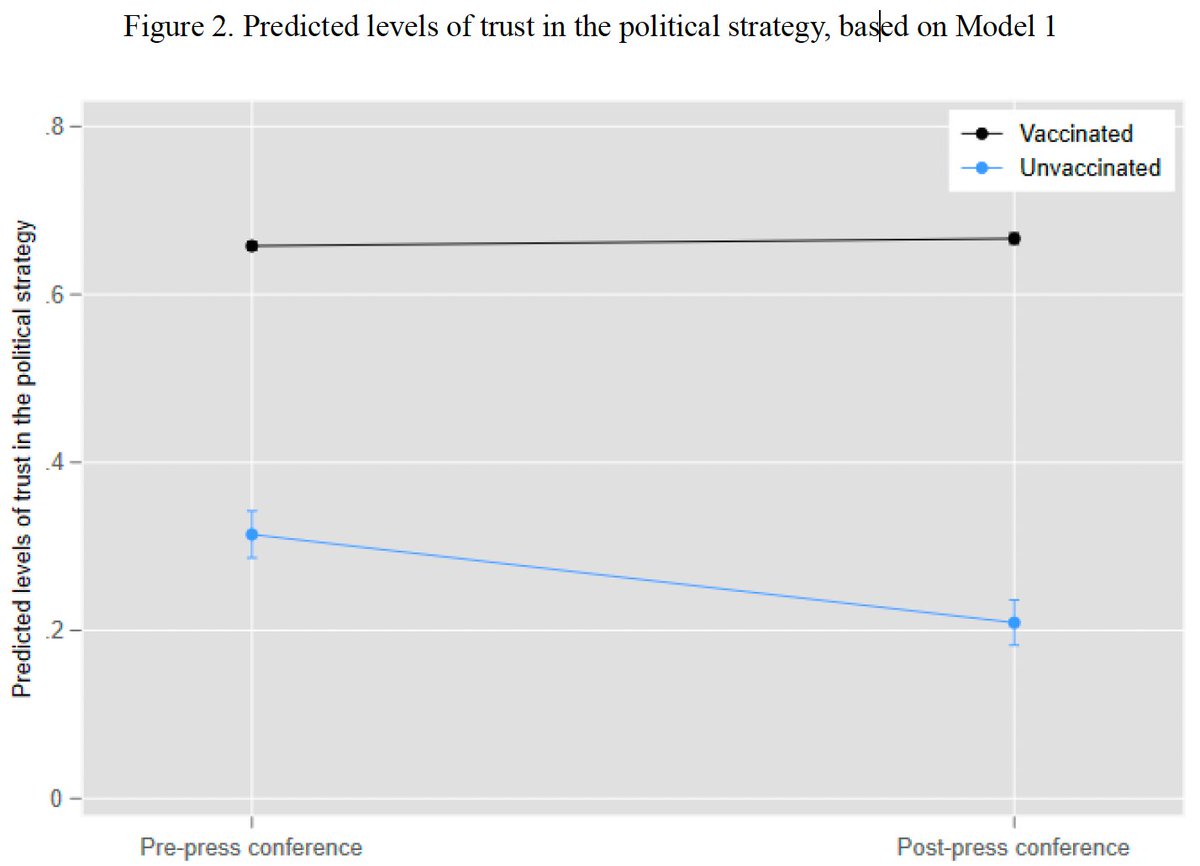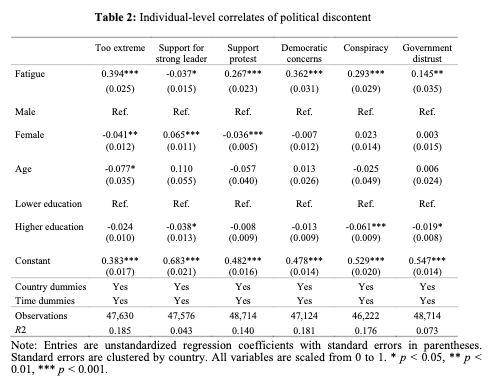
🚨NEW PREPRINT🚨
Are there costs to using pressure to increase COVID-19 vaccinations?
In Denmark, even mild pressure *decreased* trust among the unvaxxed with 11 %-points. This may reduce compliance with other advice & fuel dissent.
psyarxiv.com/j49zg
🧵(1/4)
Are there costs to using pressure to increase COVID-19 vaccinations?
In Denmark, even mild pressure *decreased* trust among the unvaxxed with 11 %-points. This may reduce compliance with other advice & fuel dissent.
psyarxiv.com/j49zg
🧵(1/4)

We use a difference-in-differences design on the basis of daily surveys of trust and vaccination status in Denmark. On Nov 8 2021, a press conference announced that covid passports were re-introduced, in part, to make life of the unvaxxed "more burdensome". (2/4)
Among the unvaxxed, this lead to a decrease in their trust in the political strategy of handling the COVID-19 pandemic with 11 %-points. This group was already low in trust but the announcement decreased it further. The vaxxed had high and unchanged levels of trust. (3/4) 

Analyses show that trust underlies motivations that are highly predictive of compliance with health advice: github.com/Hopeproject202…. Pressure may thus not only fuel political protest but also crowd out compliance with other health advice incl. about booster vaccinations. (4/4)
• • •
Missing some Tweet in this thread? You can try to
force a refresh













